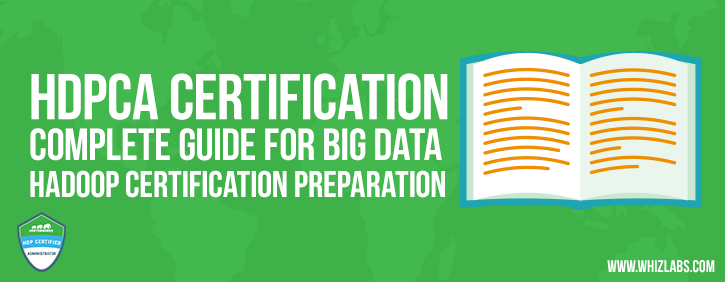Python and R are the two widely used data analysis tools for day-to-day activities of a data scientist. However, there is a silent battle when it comes to select the best one among them. ‘Python or R?’ It is indeed a burning topic in the world of data science today as both the languages have their pros and cons.
In fact, it is challenging for a newbie as a data scientist to understand Python or R which is better to follow in the long run. For this reason, it is better to go into detail features of both the languages and map it with your knowledge.
Also Read: Why Should You Learn Spark to Become a Data Scientist?
However, to start with we must say the primary differences between the two languages are their purposes with the specific mindset. To clarify, R is more statistics oriented whereas Python is for a programmer.
Let’s look into particular features to get an overview of both the languages.
Why and When to Go with R?
When the data scientists need to do data analysis on standalone or individual servers, R works very handily. The reason behind it is the vast number of packages readily available with it. Moreover, it often provides data scientists with necessary tools for faster exploratory work.
Features of R
- R is an open-source data science tool and freely available. Hence it is an excellent tool as a money saver for the companies. Once you install R, use it as per your choice and need. Not only it is free, but also you can easily upgrade it.
- R supports cross-platform compatibility and can run on all operating systems like Windows, Mac OS X, and Linux. Furthermore, you can import data from other tools like Microsoft Excel, Microsoft Access, and Oracle, etc.
- R as a scripting language can handle large and complex data sets. Also, you can use it for resource-intensive simulations on high-performance computer clusters.
- R packages support many new statistical developments as it is highly flexible and versatile. You can perform specialized statistical work on Psychometrics, Genetics and even on Finance. Also, you can access about 2000 libraries freely covering statistical areas like finance, cluster analysis, high-performance computing and more.
- R has packages like ggplot2 with which you can efficiently perform plotting. Moreover, R integrates easily with document preparation tools like LaTeX which helps in embedding statistical output and graphics from R to word processing documents. Hence it is a great data visualization tool for data scientists.
- A strong widespread statistical community supports R. As you can find already-written packages over there, it helps you immensely in your difficult analysis job.
- People use R primarily for academic or research data analysis purpose. However, it is for enterprise purpose as well.
- R is easy to learn with a steep learning curve. If you are an experienced programmer, once you know the basics of R, you can quickly grasp the advanced concepts.
- R packages are solely designed to make data analysis and statistics easy for data scientists. However, R processing is bit slower.
Why and When to Go with Python?
Python is a fully fledged programming language and used mainly for data analysis of web apps. Along with it when you need to incorporate statistical code with production database Python works as an efficient way for implementing algorithms for production purpose.
Features of Python
- Python is an object-oriented programming language and easy to code for a programmer who is already acquainted with other OOP languages like Java, C++ or Perl. Coupled with user-friendly features like code readability, simple syntax, easy implementation, Python gives a user the scope of less coding.
- With its intense debugging and less coding feature Python lends itself a good option for programmers stepping into data science field.
- Python is open source tool hence appealing for companies in perspective of cost savings.
- Because of high-performance, Python is a choice in business-critical scenarios.
- Python is ideal for machine learning, deep learning and for building tools or services.
- Python is a general-purpose programming language with scripting feature. As a result, you can use it in enterprise applications as well for scientific computing purpose. Moreover, enterprises widely use Python for data-centric application development.
- Python has many useful data analysis packages like Pandas. It is one of the most well-renowned data analysis packages offering high performance for data analysis. Moreover, RPy2 package of Python covers most of the R functionalities
- IPython is useful for visualization purpose.
Python or R for Data Science – Let’s Get the Data Points
Popularity
Python is more popular than R. The main reason why behind it is R is only used for data science purpose whereas you can use R as a programming language to develop web applications as well for data analysis. On the other hand, as jobs in Python ranges from developer to data scientist, average salary figure is less than R profile.

Market Usability
R has already gained acclaim in the market with its estimated 2 million users. Today R is one of the top data science tools. However, almost all industries use Python tech. From Google to NASA or YouTube everywhere Python has already left its foot mark.
Use in Data science
Data analysis perspective when we consider Python R or any other data analysis tools, R is the winner in the market. However, more people are switching from R to Python due to the versatile usability of Python in the data science and Big data field.
The Bottom Line
Python or R both is not rocket science. If you are a beginner in data science field with programming skill, the learning curve will be same for you for both Python and R. In contrast, if you are from a statistical background with no programming knowledge, R is the best choice for you. Definitely choice depends on goal as well. If your goal is not to become a data scientist and just to gain knowledge of data analysis for programming purpose Python is the best for you.
From problem perspective, both R and Python stand on the same height for data analysis. In fact, performing data analysis in either language is almost similar. However, as a flexible and multipurpose data analysis tool Python wins the game.
A data scientist must be a blend of coder and statistician. If you are already a programmer or your data science learning goal is for application development purpose; then Python is the right learning path for you. But for a core data scientist definitely, there is no better choice than R.
Keeping all the above data points in mind, finally, Python or R is your choice!
Conclusion
Python or R can even be part of a Big data solution. As a data scientist, you often might have to deal with Big data tools like Hadoop. A data scientist with Hadoop knowledge is an asset for any organization, and significantly the combined skill helps to increase the salary. Moreover, he can play the role of Hadoop architect in the industry.
[divider /]
Whizlabs is pioneering to provide Hadoop Certification Courses (HDPCA exam and HDPCD exam) which are one of the sought after Hadoop certification in the market offered by Hortonworks. The training guide gives a learner complete coverage of Hadoop ecosystem both in theoretical and practical aspects. With our in-depth and up to date training material, you will get a fair idea of deploying Big data application in the real world. Hadoop along with Python or R will give an edge over in your data science career.
Have you any query/doubt? Just write below in comment section or write here, our expert team will be happy to answer!
- Top 45 Fresher Java Interview Questions - March 9, 2023
- 25 Free Practice Questions – GCP Certified Professional Cloud Architect - December 3, 2021
- 30 Free Questions – Google Cloud Certified Digital Leader Certification Exam - November 24, 2021
- 4 Types of Google Cloud Support Options for You - November 23, 2021
- APACHE STORM (2.2.0) – A Complete Guide - November 22, 2021
- Data Mining Vs Big Data – Find out the Best Differences - November 18, 2021
- Understanding MapReduce in Hadoop – Know how to get started - November 15, 2021
- What is Data Visualization? - October 22, 2021





Very interesting blog post.Quite informative and very helpful.This indeed is one of the recommended blog for learners.Thank you for providing such nice piece of article. I’m glad to leave a comment. Expect more articles in future.
Great information. Since last week, I am gathering details about python.There are some amazing details on your blog which I didn’t know. Thanks.
Great information. Since last week, I am gathering details about python.There are some amazing details on your blog which I didn’t know. Thank
It’s a good post! Thank you for sharing your knowledge to others, it was very informative and in depth one.
Great blog,Thanks for sharing the information !
Such a very useful article. Very interesting to read this article.I would like to thank you for the efforts you had made for writing this awesome article. machine learning courses in Bangalore
Interesting writing!
Keep going
It’s very convenient when people can find out information easily.
So, I think that you should read this article and update the latest information.
I really enjoy simply reading all of your weblogs. Simply wanted to inform you that you have people like me who appreciate your work. Definitely a great post. Hats off to you! The information that you have provided is very helpful.
Impressive. Your story always bring hope and new energy. Keep up the good work.
After reading your article I was amazed. I know that you explain it very well. And I hope that other readers will also experience how I feel after reading your article.
Data Analyst Course
Extremely overall quite fascinating post. I was searching for this sort of data and delighted in perusing this one. Continue posting. A debt of gratitude is in order for sharing.data science courses in Hyderabad
Extremely overall quite fascinating post. I was searching for this sort of data and delighted in perusing this one. Continue posting. A debt of gratitude is in order for sharing.data science course in Hyderabad
Extremely overall quite fascinating post. I was searching for this sort of data and delighted in perusing this one. Continue posting. A debt of gratitude is in order for sharing.data science course in Hyderabad